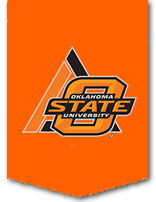Cockerham speaks at FAPC marketing workshop
STILLWATER, Okla.—A representative from the Associated Wholesale Grocers was one of nine presenters during the Food & Agricultural Products Center's second annual “Real World” Marketing Workshop held recently.
Gerald Cockerham, director of member services for AWG, has more than 20 years experience in various management positions, including distribution, merchandising, buying, category management, sales and implementation of a central procurement department for a major wholesaler.
Cockerham's presentation was titled, “Enhancing the Competitiveness of the Independent Retailer,” and he discussed the recommendations and responsibilities of the wholesaler, retailer, supplier and manufacturer.
Cockerham said wholesalers must take the lead in the acceptance and use of more integrated business planning processes. The recommendations wholesalers give retailers should be specific and provide feedback, performance measures, guidelines and resources.
“You want to get product on the shelf as quickly as possible,” he said.
Suppliers must develop the internal capabilities needed for using more integrated business processes. Suppliers should provide consumer, market and category information, in-store implementation and must develop performance measures.
Retailers should support and participate with the wholesaler in the development and execution or business plans. Retailers should provide feedback on program results and take responsibility for completion.
Cockerham said another important aspect is managing product assortment. This involves having the right assortment, getting the new product to the shelf and getting the discontinued product off the shelf.
“The average time spent by a customer shopping a category is only 11.5 seconds,” he said.
Cockerham discussed the assortment responsibilities of the wholesaler, retailer and manufacturer.
The wholesalers’ responsibilities are to conduct product assortment reviews, receive and evaluate new item presentations and decide on assortment changes based on category plan results.
The manufacturers’ responsibilities involve providing accurate and timely information on each assortment change. Also included in these responsibilities are providing store implementation resources and monitoring item placement and space allocation.
Retailers should manage the store level implementations, assign store level responsibilities and develop retail-level shelf change authorization rules. Key barriers that go along with these responsibilities are item focus vs. category focus and lack of store level performance.
“The implementation of these best practices of assortment management, shelf management and display management will lead to a competitive advantage for the independent retailer,” Cockerham said.
The purpose for the marketing workshop was to help participants address marketing issues such as market identification, market research and market planning, said Jim Brooks, FAPC business planning and marketing specialist and chair of the workshop.
"The fact is a good marketing program is essential to survive and succeed in the highly competitive food-marketing arena," Brooks said. "Marketing is not just radio, television and other advertising. It's not just knocking on doors of prospective buyers and attending trade shows. It's critical for success."
Other speakers during the workshop included Del Van Horn, Advance Food Co.; Steve Long, Food Marketing Specialists; Bob Johnson, Sysco Food Services; Vince Orza, Eateries, Inc.; Randy Earhart, Taco Mayo; David Brooks, Shawnee Milling Co.; Mark Harsha, Harsha & Associates; and Lee Ann Potter, Oklahoma Restaurant Association.
- ### -
Oklahoma State University, U.S. Department of Agriculture, State and Local Governments Cooperating. The Oklahoma Cooperative Extension Service offers its programs to all eligible persons regardless of race, color, national origin, religion, sex, age, disability, or status as a veteran, and is an equal opportunity employer.

